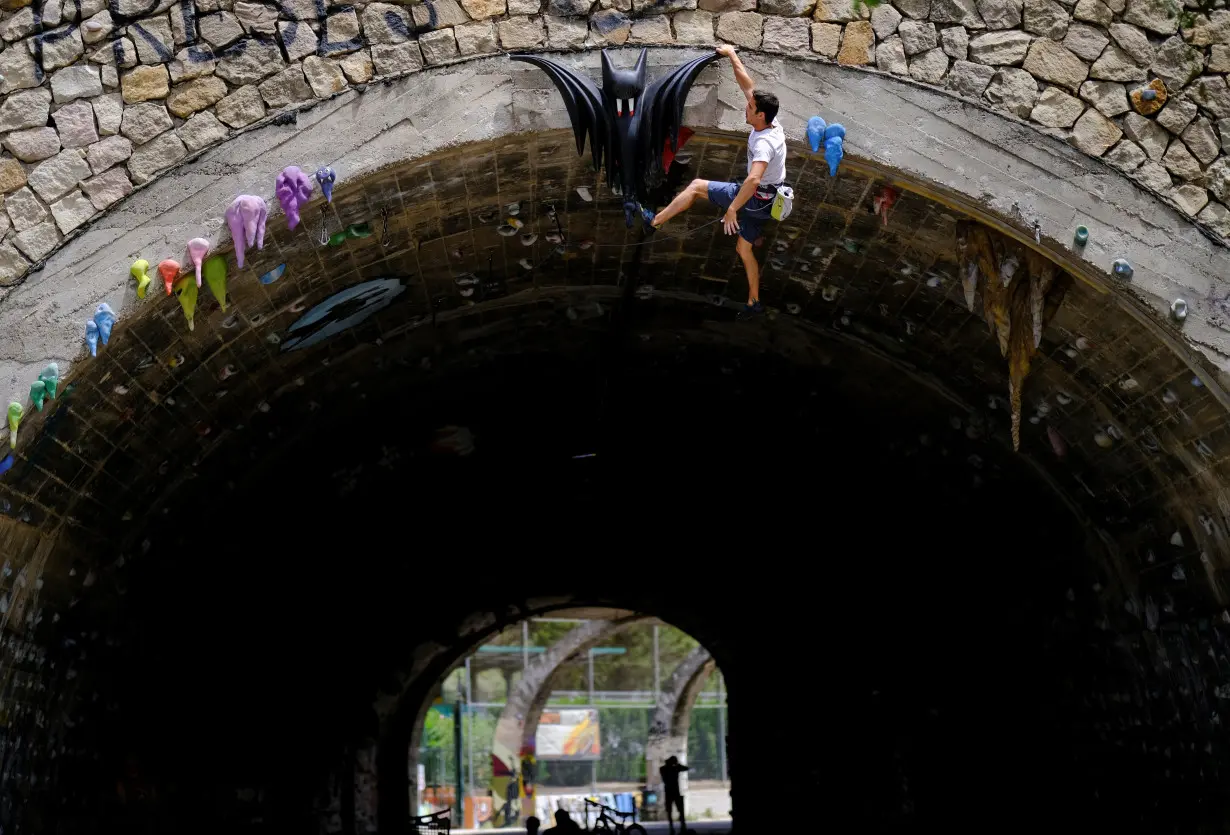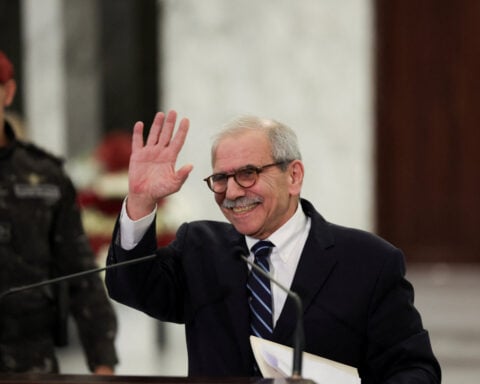By Antoine Demaison and Nacho Doce
BARCELONA (Reuters) - The Foixarda tunnel in Barcelona hides a free-to-use climbing treasure trove made up of thousands of holds of all shapes, sizes and colours that have helped to popularise the sport and shape it into an official Olympic event.
"There's a lot of passion here... And the reward is to see how people take up the sport," said Manolo Sanchez, 58, whose dedication transformed the former road tunnel into an urban climbing gym, coveted by locals and tourists alike.
"I find it incredible; incredible that a sport that was practised by so few people is now an Olympic sport," Sanchez said.
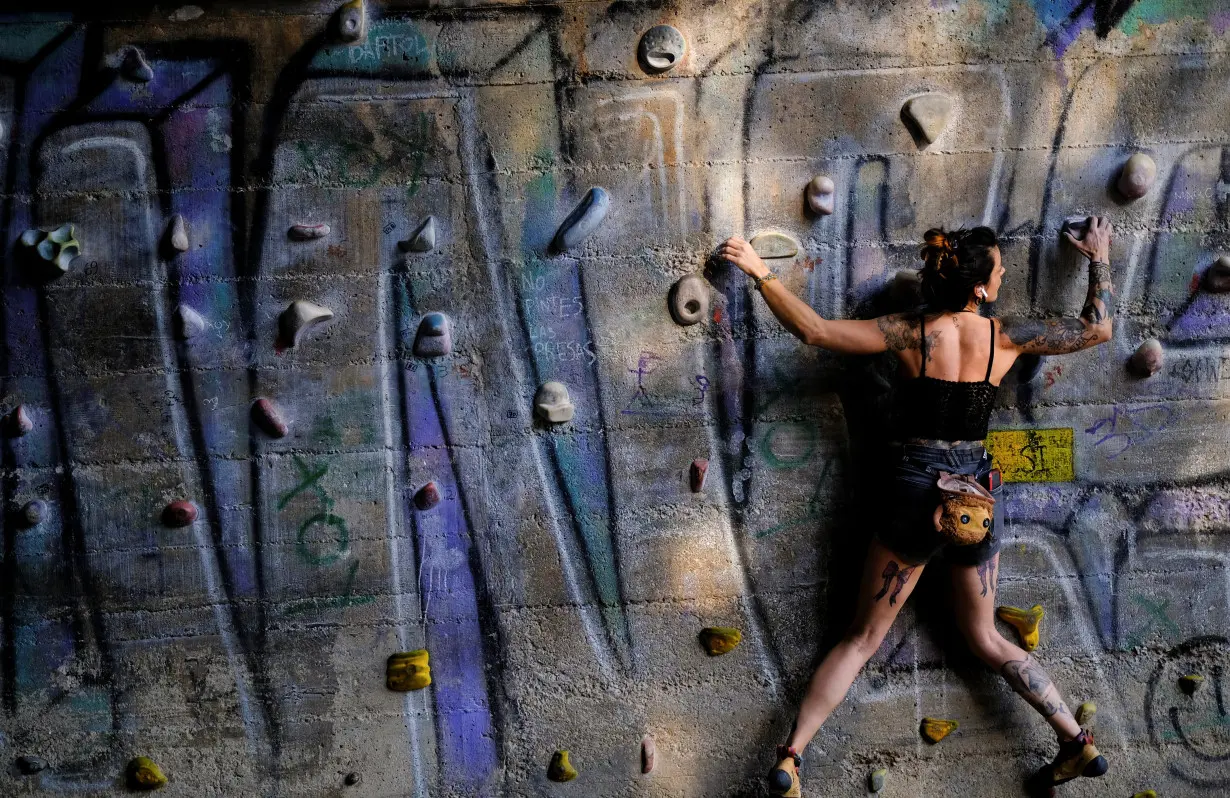
Climbing debuted at the Tokyo Olympics and will next month feature in the Paris Games at the Le Bourget climbing venue -- the only sports facility to be built specifically for Paris 2024.
Sanchez started climbing in the tunnel in 1992, the year of the Barcelona Olympics, using rocks and pieces of wood stuck to the walls, before starting to make his own holds in 1995.
Back then, he and his friends could use it only during the night due to road traffic and they referred to themselves as 'vampires', a symbol present on many of Sanchez's homemade holds. He pays for the materials with his earnings from a climbing gym he runs and donations from climbers.
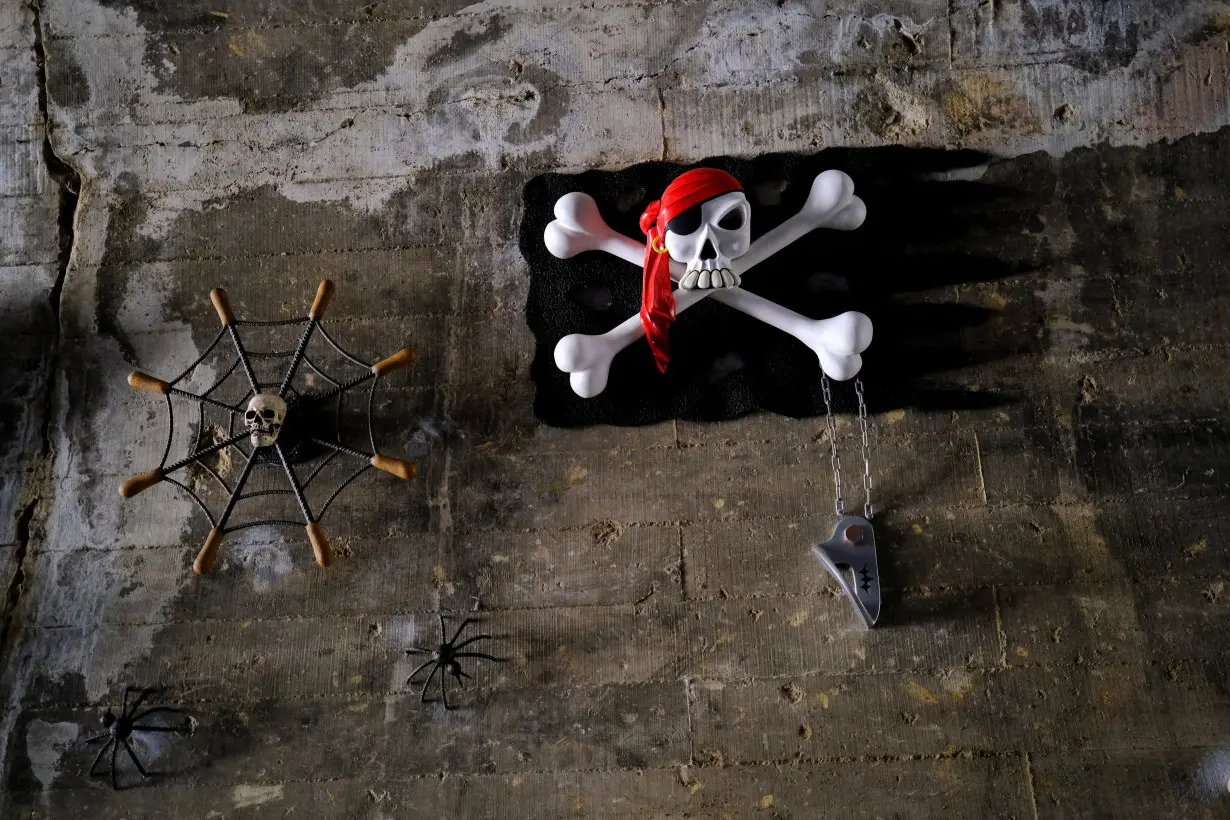
Equipped with more than 9,000 holds, the tunnel is now open 24/7 and is free to use.
"That's a big gift," said Italian climber Martina Detassis, 33. "It's a very expensive sport," she added, citing costly accessories and fees to use climbing facilities elsewhere.
Sanchez's 18-year-old son David Sanchez Carrera, himself a climber, praised his father's work. "I feel that thanks to him, climbing has kind of expanded," he said. "I mean, if this tunnel wasn’t there, many climbers nowadays would not have been who they are."
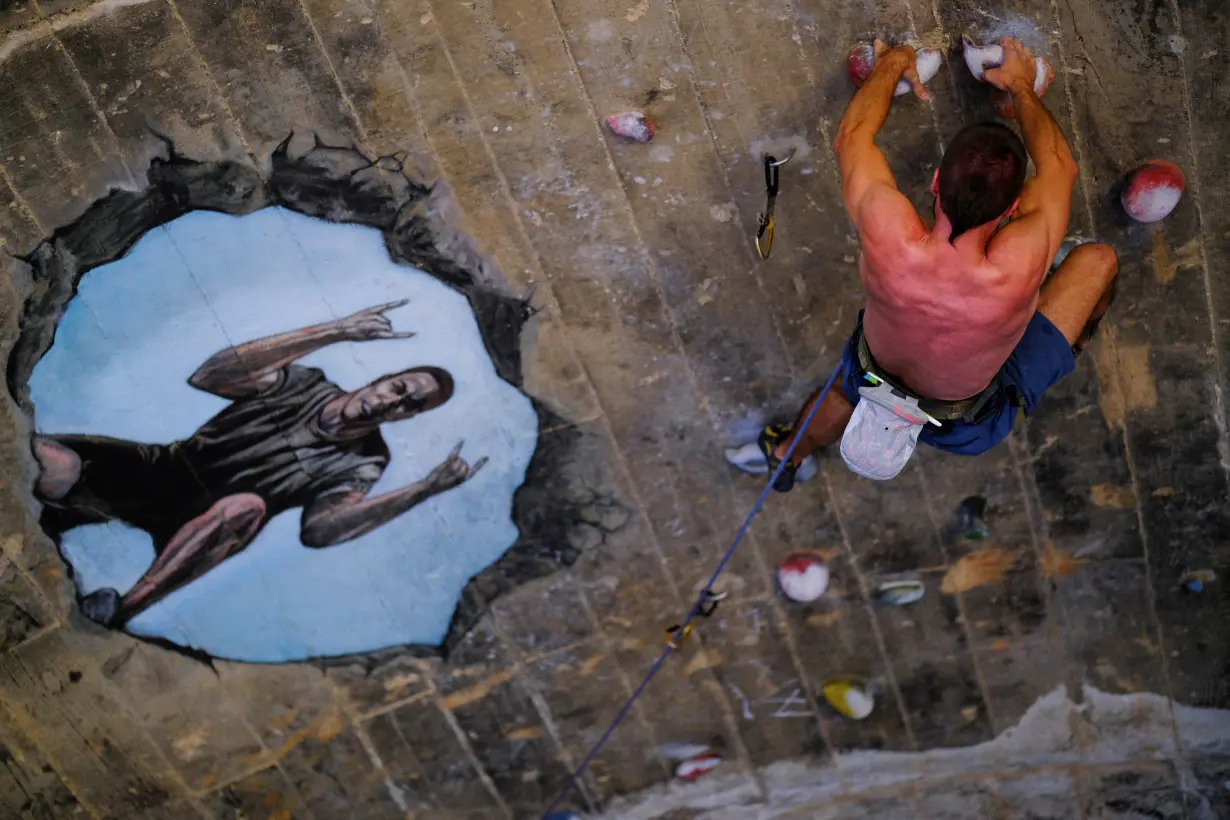
(Writing by Andrei Khalip; editing by Clare Fallon)
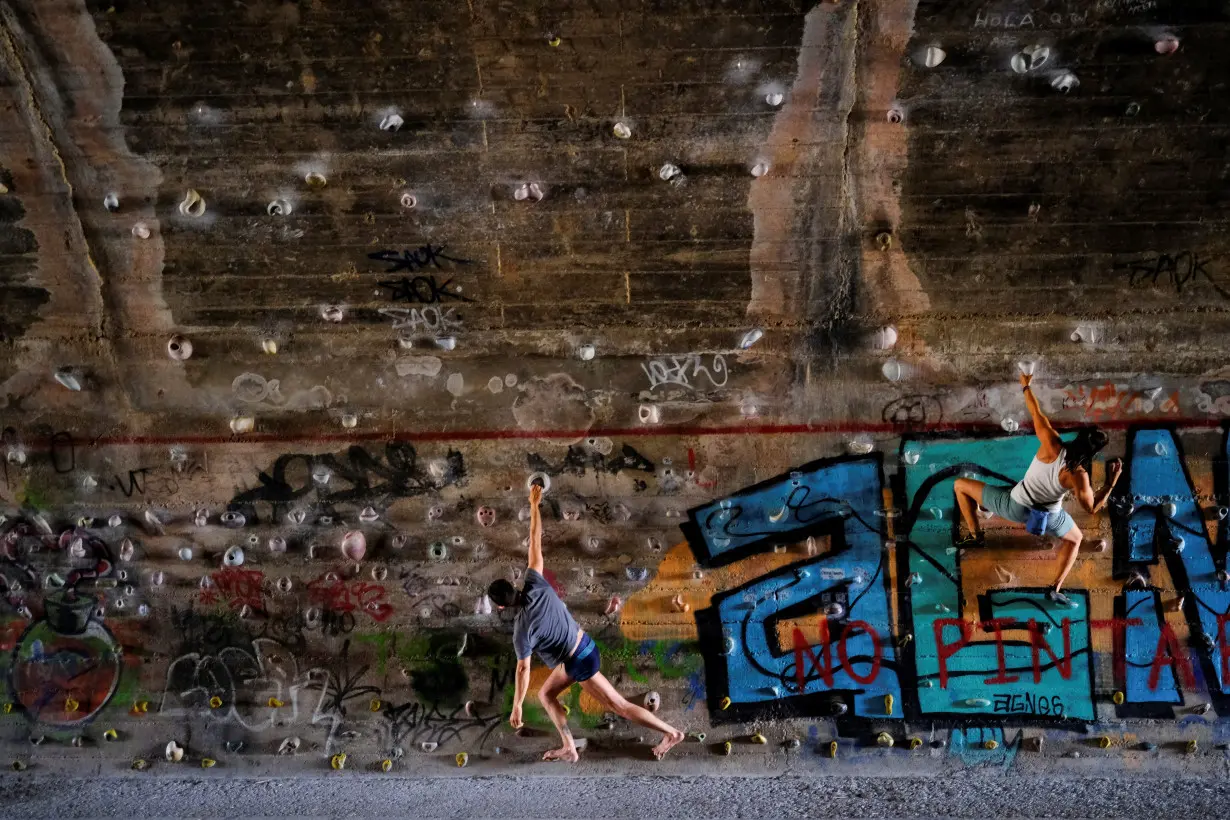

 TikTok seeks to reassure U.S. employees ahead of Jan. 19 ban deadline
TikTok seeks to reassure U.S. employees ahead of Jan. 19 ban deadline
 US won't seek charges in unarmed Black motorist Ronald Greene's fatal 2019 arrest
US won't seek charges in unarmed Black motorist Ronald Greene's fatal 2019 arrest
 Euro zone households could increase consumption, ECB chief economist says
Euro zone households could increase consumption, ECB chief economist says
 Foreigners sold South Korean equities last month by most since early 2020
Foreigners sold South Korean equities last month by most since early 2020
 Trump and Biden national and homeland security staff will meet Wednesday for threat exercises
Trump and Biden national and homeland security staff will meet Wednesday for threat exercises
 As fires ravage Los Angeles, Tiger Woods isn't sure what will happen with Riviera tournament
As fires ravage Los Angeles, Tiger Woods isn't sure what will happen with Riviera tournament
 Antetokounmpo gets 50th career triple-double as Bucks win 130-115 to end Kings' 7-game win streak
Antetokounmpo gets 50th career triple-double as Bucks win 130-115 to end Kings' 7-game win streak
 No 97 Laura Siegemund upsets Olympic champion Zheng Qinwen at the Australian Open
No 97 Laura Siegemund upsets Olympic champion Zheng Qinwen at the Australian Open
